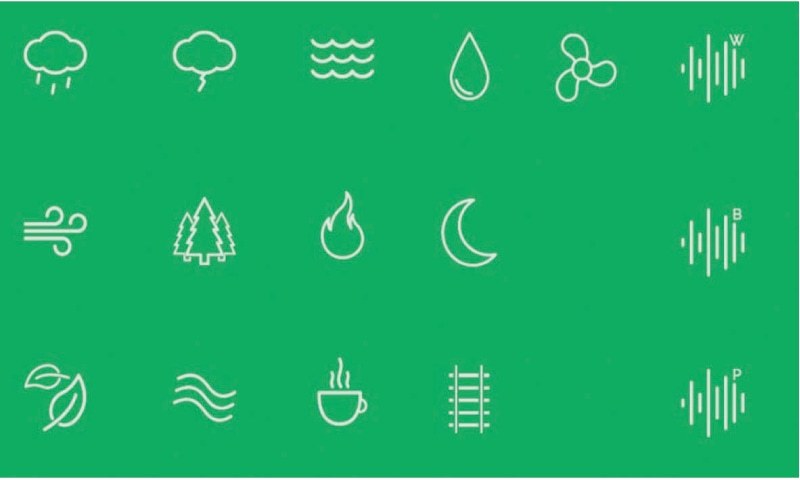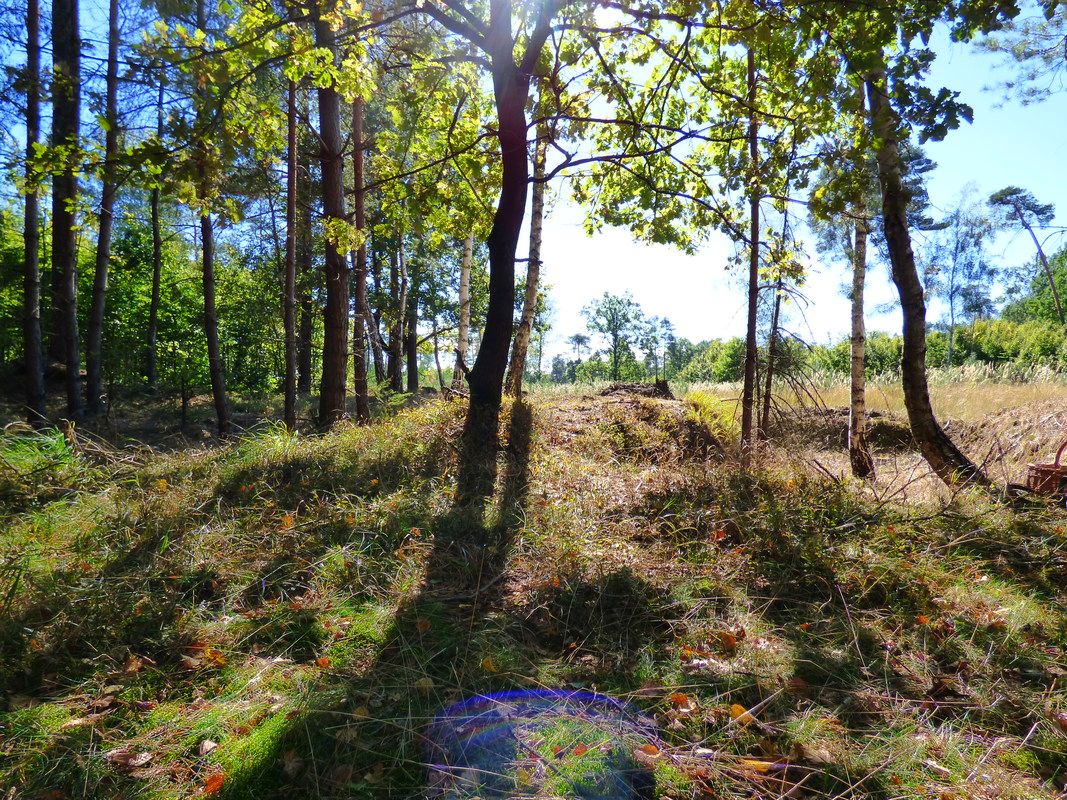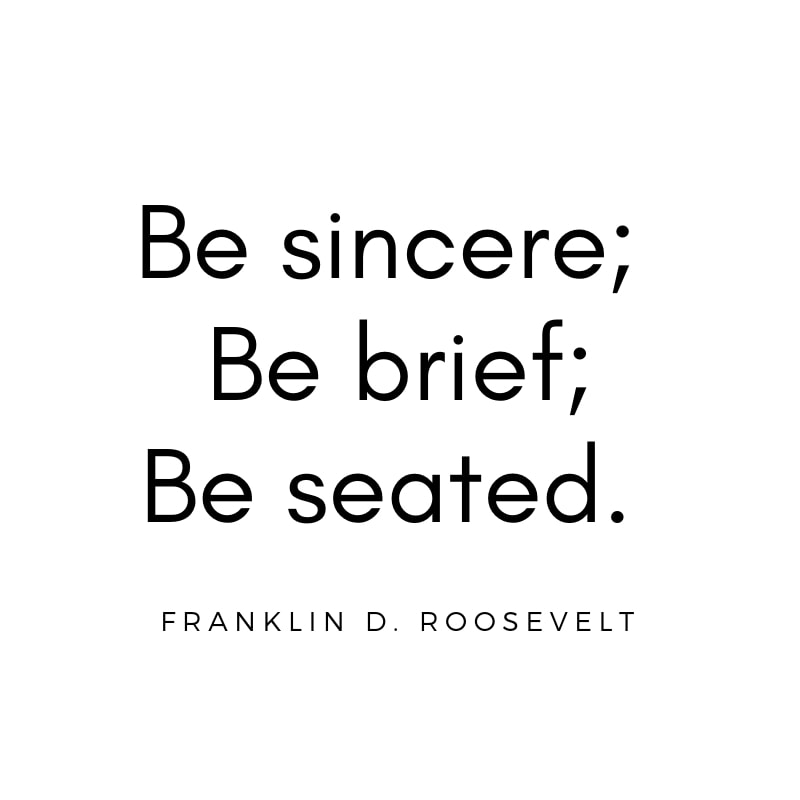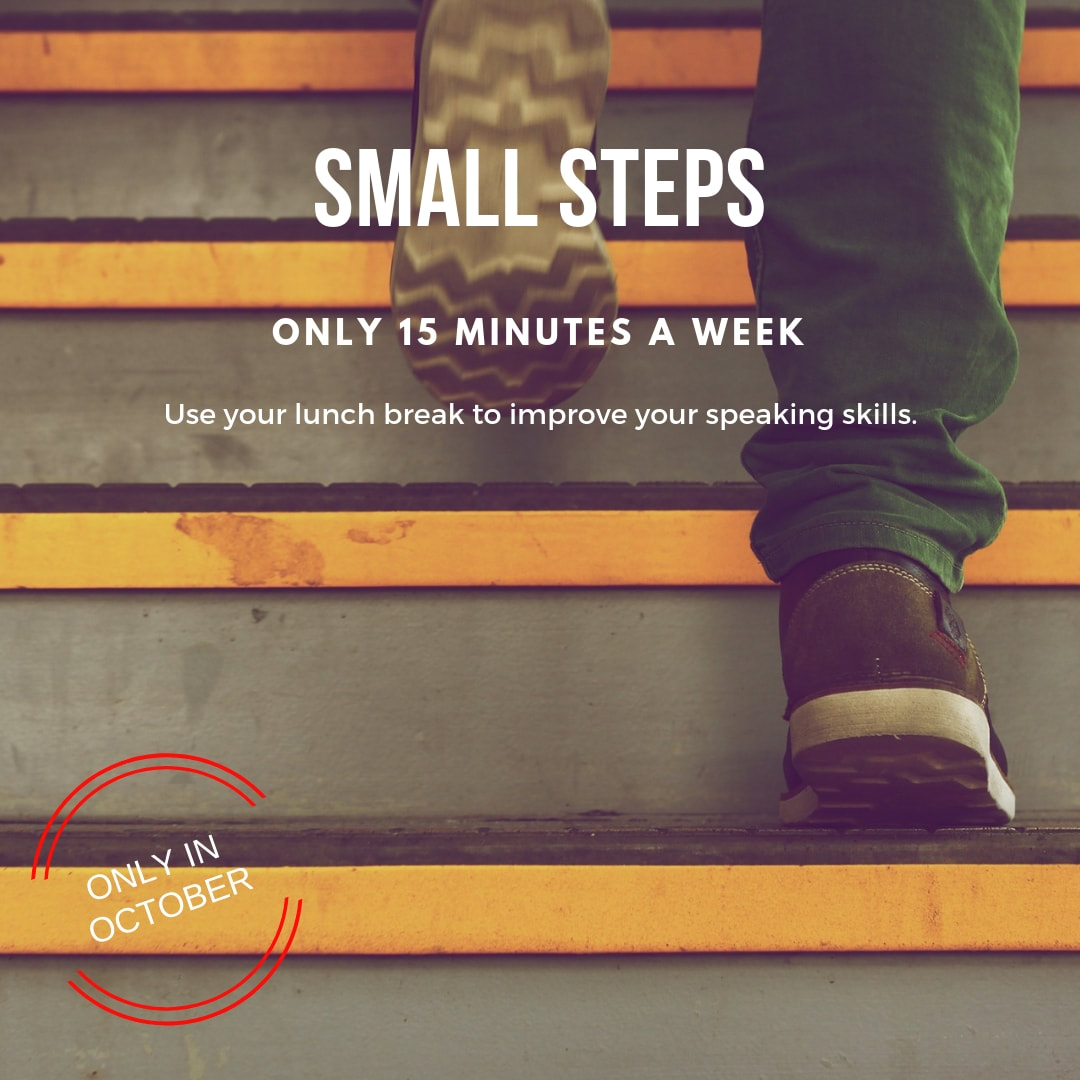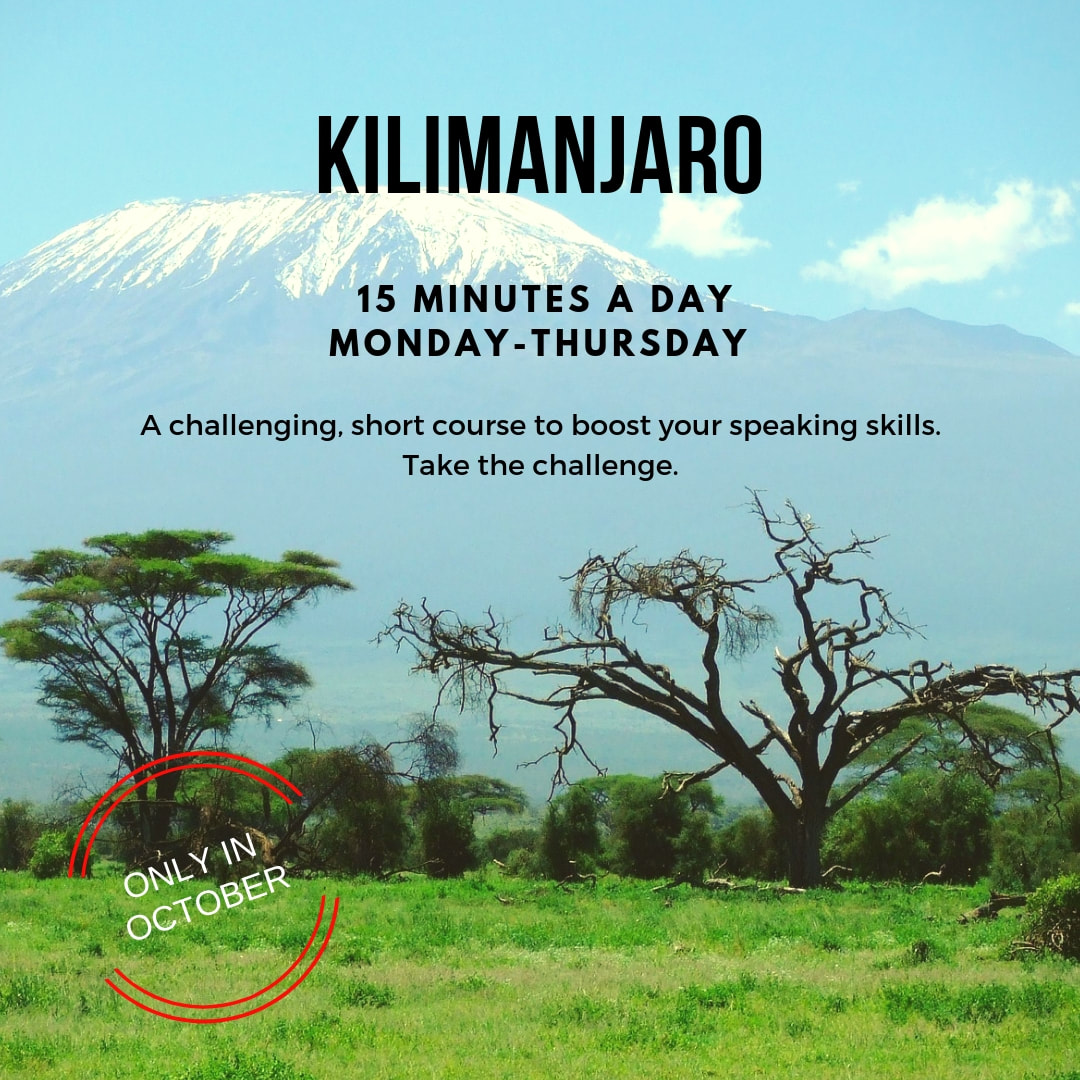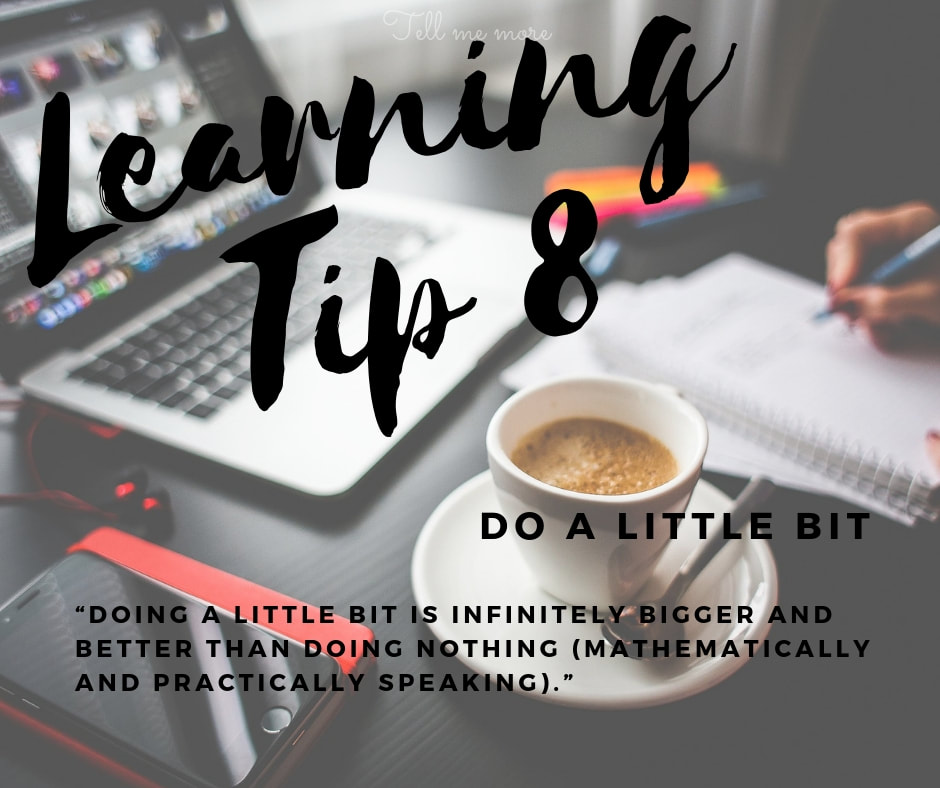|
Autumn has come. There’s no point denying it. The mornings are pretty chilly and we tend to stay at home more. But today, I would truly like to encourage you to GO OUTSIDE (and take your learning with you …:) A few days ago I wrapped myself up, packed all the necessities and made the place in the photo above my office for the day. Surprisingly, I managed to complete every task I had set up for the day, plus I felt so much at peace. Changing our working or learning environment can bring a totally new dimension to it. Our productivity increases when our mind is ready to process new information. I believe that limiting distractions can help us focus more and as a result remember things longer and better. That is why I want you to try and give your learning routine a little twist once in a while.
The studies show that regular direct access to nature can: increase self-esteem, improve concentration, learning, creativity, cognitive development, cooperation, flexibility and self-awareness. Oh, boy! What a list! And I am sure it is not complete. And while we’re on the topic of nature, there are two more things I recommend you to check out.
Ben travels around the world and meets people who have turned their backs on the rat race and set up home in some of the most remote and extraordinary parts of the world. I am a huge fan of the series, not only because it is in English, but primarily because it is honest, moving and motivating. It emphasizes the connection with nature we all should have and makes you rethink your life and your daily choices. I’m signing off now. Hope you have a great autumn.
Can I get to love public speaking?
Maybe. Can I get better at it and stress less? Absolutely. Below you will find some advice that come from my personal experience, observations and talks with my friends or students. The list is by no means complete, but I hope it can you some food for thought. Be well prepared but also don't be afraid to be spontaneous. Definitely know what you want to say and have a framework that you can follow. Know your audience and adopt your talk to them. Also, know what resources you will have at your disposal and have a backup plan if it turns out that you cannot use them in the end. Plan your presentation using your favorite method. I use the colour coding technique with my students. Have your notes in a paper/ computer version not only in your head. *Don't take the notes to your presentation, though or put them in your bag before you start your show. Look good=feel good rehearse your talk wearing the clothes you intend to wear when giving your talk or presentation. How on earth can that affect my skills, you may think. Well, if you don't feel comfortable, you have problems to walk or feel somehow exposed these will definitely shake your confidence. Then, instead of focusing on your talk, you will focus on your appearance or start imagining people are staring and judging you. If you don't wear high-heels on regular basis, you may find that during your talk you spend more time controlling your walk. Check the pronunciation of any difficult words / names. Don't go with the flow here. English can be really nasty when it comes to the pronunciation of different words. If you talk about some people or their organisations also check how to say it beforehand. Save yourself the embarrassment of mispronouncing the names of people especially if they are present during your talk. I remember when I was giving a presentation on a grammar issue to my colleagues during my TESOL course. The grammar point I was to talk over was the passive voice. I thought that my example with Don Kichote was written by Cervantes would be just great to start with. However, since the name of the book and the author was in Spanish I wrongly assumed that the pronunciation of these two would be the same in any language. Once I read my example the whole room was in laughter. It actually ended up well as it turned to be a very interesting discussion point in my presentation and people had different ideas of how it should be pronounced. Anyhow, I have learnt my lesson and now I go with Hamlet was written by Shakespeare. Your intonation and pace matters - it's not a race. You will know your presentation. You have probably practiced it a zillion times (if you didn't you should have) but your audience hears it for the first time. It is new to them. Don't just get it over and done with. Make sure that you highlight important aspects, paraphrase or repeat them if necessary. Make sure your intonation varies. Don't put your audience to sleep with a monotonous voice. Instead, inject some energy into your talk. Keep the eye contact / or pretend to do this. You must have heard it a thousand times - Keeping eye contact is essential for the success of your presentation. And well, it is. There is nothing to add here. But resist the temptation of taking your preparatory notes with. People find it very difficult not to rely on their notes when they make them easily available. Then, they also tend to look at them more than at their audience or even resort to them completely when their confidence is first shaken. Take a short plan, instead. And only if you really need to. I don't know about you but I immediately switch off when people start to read their presentation. Allow yourself to make mistakes = buy your audience with your honesty. Do the best you can, be excellently prepared but if you hear yourself making a mistake or forgetting a fancy word you wanted to use here don't kill your performance with that. If you make a mistake you can be honest and correct yourself, joke about it or just simply let it go.
Take a few deep breaths and let the odds be with you.
I am proud to present you two short speaking courses - Small Steps and Kilimanjaro.
Both courses are designed to improve your speaking skills. And both of them use a 15-minute framework. I have noticed that many of my students find it really difficult to get into a habit of regular studying. Since I believe in practising mini-habits I thought that it would be just great to offer you the opportunity to practise the language on a more regular basis. I know that time-wise it is extremely difficult to have more than one lesson a week. And money-wise, well ... yes, it's not the cheapest business. So, what I am offering you now are mini courses that you can do during your lunch break at work, in practice it means between 11-14. The only thing you need is a lunch break and WhatsApp. The conversations are based on a very short reading or video material. None of these should take you more than 5 minutes to prepare. The aim of these courses is to give you this extra kick; motivate you to find time to practise the language and show you how being consistent can improve the your learning experience. The fees for the courses are as follows
*A special discount for my regular students - Small Steps 60PLN; Kilimanjaro 200PLN If you wish to take advantage of one these 2 courses please contact me HERE or send me an email. Let’s talk a little bit about motivation today.
If we want to achieve something we need to stay motivated. We might not necessary find the whole process of achieving our goal pleasurable but we need to stay motivated to keep on keeping on when the days of “I feel like doing nothing” come. In our adult like we are often trapped between our financial commitments, work issues and family matters. No wonder that the last thing, we can think of is our English classes. Not to mention heaps of homework our ‘living in a totally different world” teachers assign us thinking that we have absolutely nothing else to do but go through grammar exercises before we go to bed. I am guilty as charged of being a teacher who loves giving homework. I truly believe in the importance of self-study and learners autonomy. The truth is that we learn a language our whole life. It’s a never-ending process. You can learn with a tutor for a while but at the end of the day, you need to take a role of a tutor yourself. That is why learning how to motivate yourself outside your classroom is super important. Well, but how to do it? Aren’t we motivated by different things? Is there a rule we can follow here and all be successful? Unfortunately, there is no simple formula to staying motivated. However, … - I simply love the word however in the moments like these because it we can expect that there is some light in that tunnel. So, however, try to do a little bit every day. As Stephen Guise says “Doing a little bit is infinitely bigger and better than doing nothing (mathematically and practically speaking).” Do not overwhelm yourself with your learning material. Many people have big ambitions, especially at the beginning of their learning path, but they overestimate their abilities and the amount of time they can devote to studying. As a result they end up discouraged and disgruntled. The secret of success lies in creating a habit of doing a bit every day. Not just doing a bit, but doing it often and regularly. A little bit every day can grow into a lifelong habit and this can change everything for you. But start small. A 5 minute vocabulary practice every day can do wonders. You cannot do it everyday, do it on Wednesdays and Fridays but do it. Your best bet would be to set a reminder, for example in your phone, at the beginning so you couldn’t blame your poor memory for your laziness. A good idea is also to build a new habit into your life by stacking it on top of the current one. I guess, many of you have a habit of drinking coffee in the morning. Because it’s already something strongly wired into your brain, it will be much easier to use this strong connection to build a new habit - having a morning brew and doing Quizlet. Science tells us that it takes about 21 days to form a new habit. 21 days doesn’t seem like a lot to me and think of the benefits and changes such a small thing can bring into your life. I truly encourage you to give it a try. For more learning tips click HERE |
AUTHORWritten by Agnieszka Kansy Categories
All
Archives
June 2024
|

